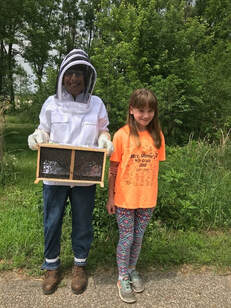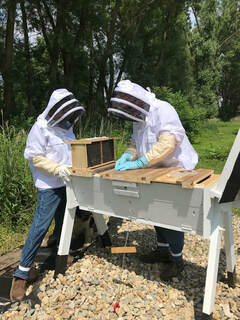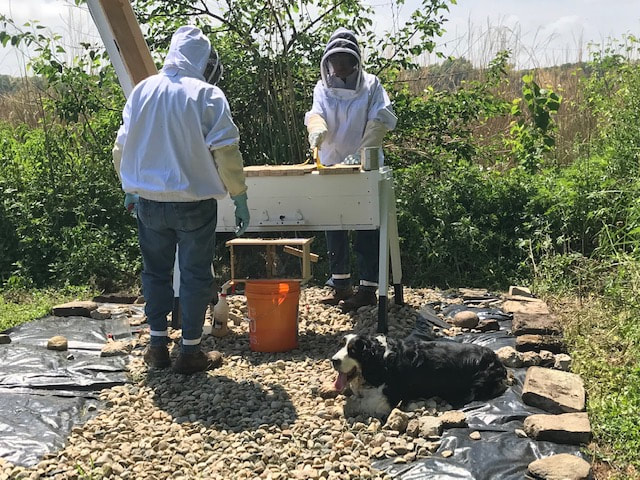
Pollinators can also help us indirectly by pollinating plants that help promote a balanced ecosystem. Not all of these plants are ones that we depend on for food or products, but they do help with processes like feeding beneficial insects, or cleaning the air and water, or providing forage for animals whose meat we consume.
Species of pollinators often specialize in pollinating a certain plant, which helps the plants avoid extinction. This also helps provide food for the organisms that depend on the plant, like birds that drink from flowers or squirrels that gather acorns. In addition to providing us with food, plants also remove carbon dioxide from the air, remove waterborne pollutants and toxins from stormwater, suck airborne chemicals out of the air, and keep cities cooler through evapotranspiration. We have pollinators to thank for helping plants reproduce so the plants can carry out these vital functions for us.

And in thinking about the importance of pollinators, bees are critical to the well-being of all of us and the planet. Bees feed us, plain and simple.
They are responsible up to 90 percent of our food production, and most cereal crops, many fruits and the majority of vegetables depend on at least some pollinator action.
Others, like almonds, would be gone in a generation without the bees who move from bloom to bloom at harvest time.
Plus, pollination of grasses helps to feed our animals, resulting in products many of us consume every day, such as meat, dairy and eggs.

- Draw carbon out of the air and fix it in the ground
- Suck up toxins and pollutants from stormwater
- Clean chemicals and smog out of the air so that we don’t breathe it
- Keep cities cooler through evapotranspiration
- Provide natural views and environments, which are psychologically soothing and restful
-Consider the soil characteristics, sunlight, drainage, and other factors when choosing plants.
-Plant a variety of different flower colors and shapes to attract many different kinds of pollinators.
-Choose native plants if possible. These plants will be better adapted to the native pollinators, as well as to the soil type, climate, and precipitation. Also, in planning your garden choose flowers in the blue-purple range which are very attractive to bees, and flowers that produce pollen which bees will seek out.
- Use chemical-free pest-management practices to avoid destroying pollinator habitats.
-Select plants that flower at different times of the year, so that these plants can provide nectar and pollen to pollinators throughout the growing season.
At Green Bridge Growers, we are extremely conscious of the priority of pollinators on our farm and in how we design and locate our crops to maximize the presence of bees. With support from South Bend’s Tri Kappa Foundation, we have built beehives at our farm to draw bees to our site and we’re also planting pollinator gardens and have areas on our farm that have been planted with bees in mind. We are happy to do our part to protect, nurture, and develop the pollinator population, and hope you’ll do the same!
 RSS Feed
RSS Feed
